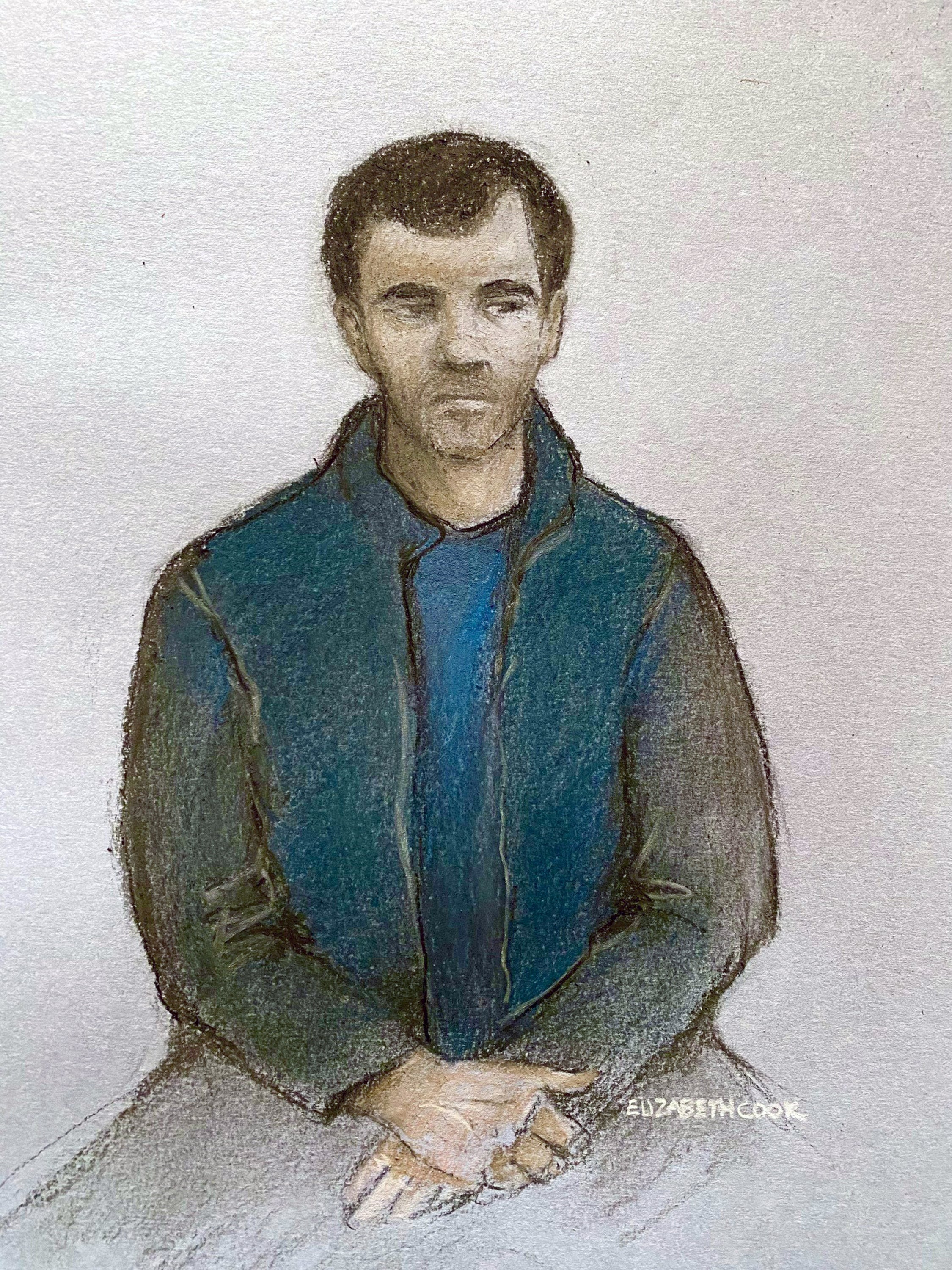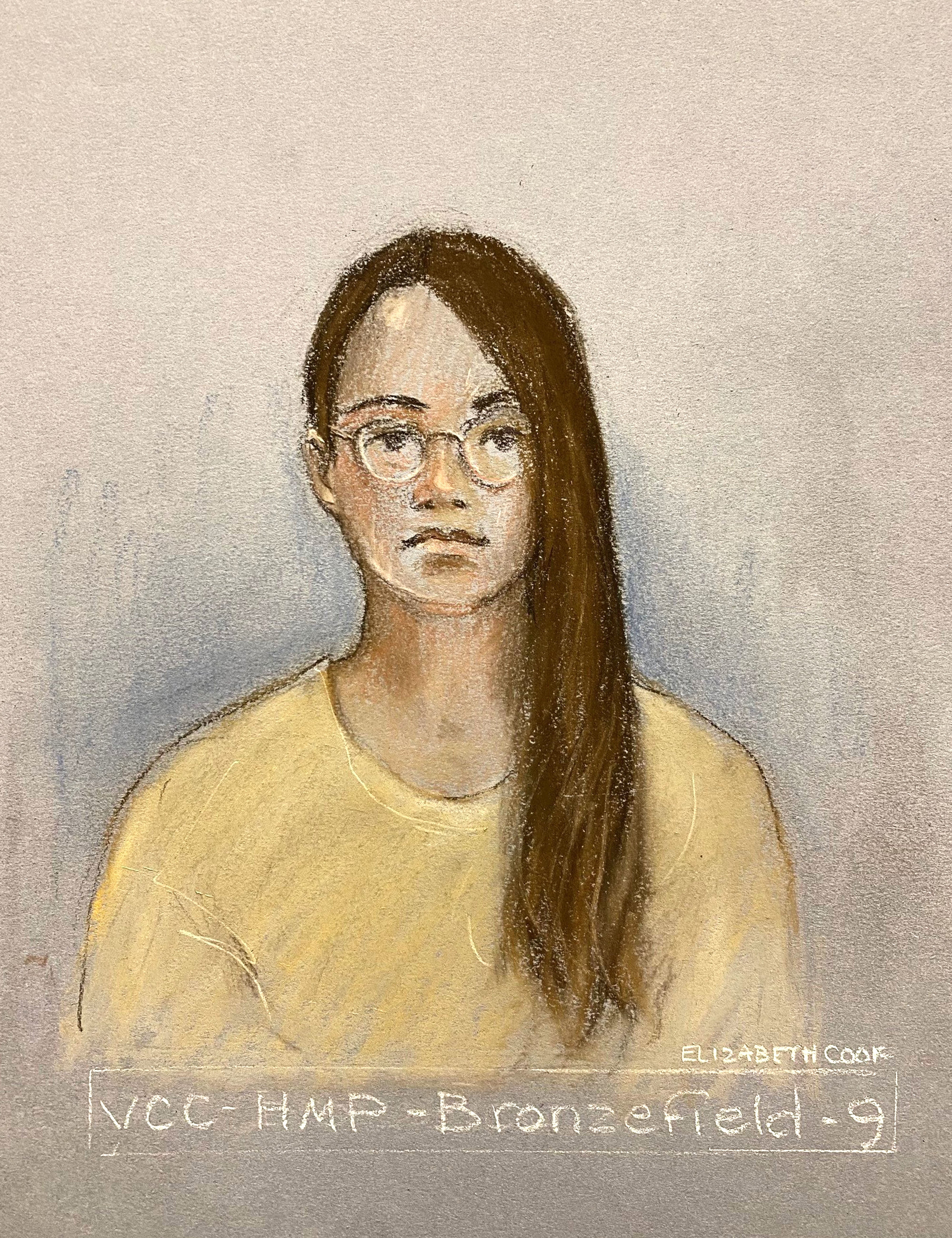
Three Bulgarians were paid significant sums of money to spy on targets including journalists, political dissidents, and a US military base as part of a sophisticated Russian spy ring operating from Britain, a court has heard.
Katrin Ivanova, 33, Vanya Gaberova, 30, and Tihomir Ivanov Ivanchev, 39, are standing trial accused of conspiring with a Russian agent to carry out “high level espionage” which included following targets on planes and discussions over whether to use the two women as “sexual bait”.
The Old Bailey heard members of the spy ring were “sophisticated” and carried out surveillance on individuals and places, creating false identities and using “advanced technology” to acquire information.
Prosecutor Alison Morgan KC said they obtained imagery and compiled detailed reports on their targets, which included a journalist who investigated the 2018 Salisbury Novichok attack, and former Kazakh politician, the court heard.
“They were tasked to gather information about prominent individuals whose activities were of obvious interest to the Russian state, often because they were dissidents who had fled Russia for their own safety,” Ms Morgan said.

The prosecution alleges their activity caused “obvious and inevitable prejudice to the safety and interests of the UK.”
Opening the case against the trio on Thursday, Ms Morgan said their activities mostly “took the form of surveillance operations, following people around and finding out information about their whereabouts, which was reported back to the Russian state.”
The jury heard two other members of the alleged ring, Orlin Roussev and Biser Dzhambazo, have already pleaded guilty to the espionage charges.
However Ms Ivanova, Ms Gaberova, and Mr Ivanchev deny the charge of conspiracy to spy between 30 August 2020 and 8 February 2023.
Ms Ivanova has denied a second charge of possession of false identity documents with improper intention under section 4 of the Identity Documents Act 2010.
The spying activities allegedly included locations in London, Vienna, Valencia, Montenegro and Stuttgart. At the time, Mr Ivanchev was living in Acton, west London, Ms Ivanova was living in Harrow, north-west London, and Ms Gaberova in Euston, north London.

Ms Morgan said messages showed they acted as a team, led by Mr Roussev, who received instructions from a Russian agent called Jan Marsalek who communicated under the alias ‘Rupert Ticz’.
The spy ring is accused of carrying out operations on six different targets. Each one of the defendants is accused of playing a role in at least two of the operations.
“This activity was, as you will see, extremely risky for them personally. At any moment they could have been caught by the authorities,” Ms Morgan told the jury.
“They were in positions of proximity to targets, following them on aircraft, even envisaging the possibility of direct contact with targets, for example by the female defendants being used as a ‘honey trap’, as sexual bait to capture information from the targets.”
Surveillance targets included journalist Christo Grozev, who investigated the 2018 Salisbury Novichok attack and the poisoning of Russian opposition leader Alexei Navalny as part of his work for Bellingcat, the jury heard. As a result of his investigations he was placed on a ‘wanted’ list by the Russian Interior Ministry.
In messages exchanged between Mr Roussev and the Russian agent between July and September 2021, they discussed surveillance of the journalist, robbing his laptop, kidnapping or killing him and infiltrating Bellingcat, Ms Morgan said.
The ring also targeted Russian dissident and founder of media outlet The Insider, Roman Dobrokhotov, the court heard.

Other alleged operations included surveillance of former politician Bergey Ryskaliyev, who fled Kazakhstan for the UK, and a false protest plot at the Kazakhstan embassy.
Ms Morgan said the targeting of the political dissident in November 2021 would have helped cultivate relations between Russia and Kazakhstan.
The fifth operation concerned Patch Barracks, a US military airbase in Stuttgart, Germany, in 2022. At the time, the defendants believed the base was being used to train Ukrainian soldiers, it was alleged.
The sixth operation targeted Russian lawyer Kirill Kachur, designated a “foreign agent” by Russia in November 2023, when he was spending time in Montenegro between September 2021 and January 2022.
Ms Morgan said the ring used “law enforcement grade” equipment and was in possession of recording devices, signal jammers, GPS trackers, 11 drones and three telephone eavesdropping devices known as ISMI-grabbers.
They also had 221 mobile phones, 258 hard drives, 495 SIM cards, 91 bank cards and 75 passports or identity documents.
The trial, scheduled to last until February, continues.







